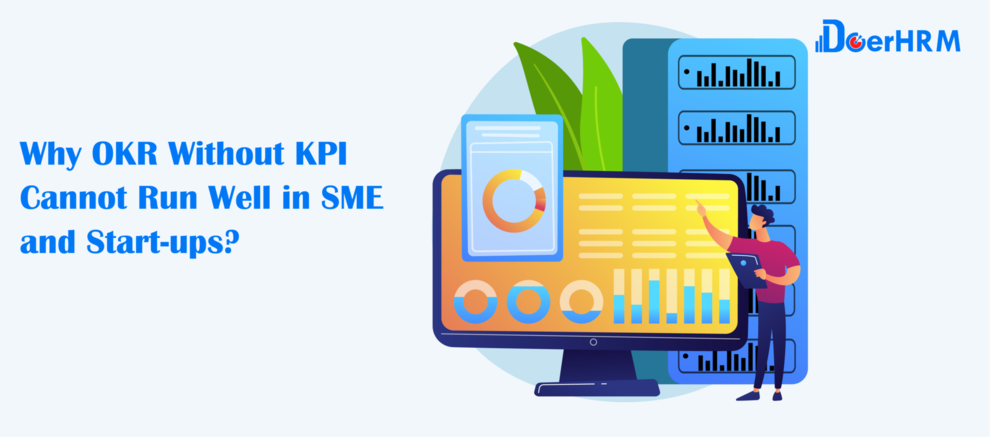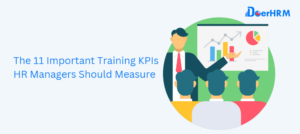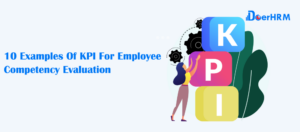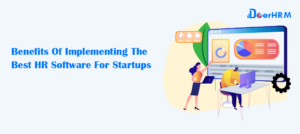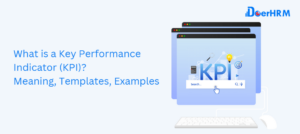Highly successful organizations all started with clear goals of where they were going. And it is these goals that have taken them where they are. Even when an organization is at what seems to be the peak of productivity in its sector, the goals keep driving the organization forward.
Over the years, small and medium-sized enterprises (SME) and even startup companies have taken to the ageless act of setting goals like highly successful organizations. Here, you will learn about what these acts are and, most importantly, why OKR without KPI cannot run well in SME and Startup Companies.
What are Objective Key Results (OKRs)
Performance Management refers to the process of setting goals and regularly checking the progress of the organization towards achieving those goals. Performance Management has different methods. An example of the methods of Performance Management is OKR.
OKR is the process of setting and aligning an organization’s goals with the goals of the different teams in the organization (Objectives). OKR is not complete until each objective has been broken down into key measurable results (Key Results.)
Key Results are limited to few (Key) Results to create the expected alignment and engagement around objectives. These Key results are often between 3-5 measurable results.
A comprehensive interpretation of OKR defines Objectives as goals and intents, while KR-Key Results are the time-bound and measurable milestones under goals and intents.
What are Key Performance Indicators (KPIs)
A more general term that explains what KPI does is Performance Measurement. Performance Measurement, as a tool, measures performance. Organizations use this tool to monitor important aspects of their programs, systems, and processes.
They use it to collect, analyze, and report different information. This information could be about the performance of an individual, team, or organization. The most important task of Performance Measurement here is that it compares the information of such individual, team, or organization with the set goals and objectives.
Hence, organizations make use of the popular Performance Measurement technique called Key Performance Indicator (KPI). KPIs are measurable standards used to gauge an organization’s overall performance. The measurements include strategic, financial, and operational metrics.
KPIs measure the success of the activities the organization engages in. Performance Indicator measurements are carried out in comparison with set targets, objectives, or other organizations within the same sector.
Why OKR Without KPI Cannot Run Well in SME & Startup Companies
The OKR framework has gained more popularity than other frameworks for strategies such as Balanced Scorecard, SMART, MBO, and WIGs. Perhaps its success at Google is a reason for its recognition. However, SME and Startup companies will struggle with only OKR.
A quick peek at the difference between OKR and KPI is that OKRs helps an organization to set ambitious goals while KPIs helps to break down OKRs into smaller goals. This breaking down of the process will help identify if the organization is still on track to achieve the bigger OKR.
The first reason why OKR without KPI cannot run well in an SME or Startup company is frustration, especially at meeting its set OKR. OKR is ambiguous, and it is also a long-term accomplishment.
When an organization does not seem to be meeting its target, teams can get frustrate. This will dampen the effective communication of different teams in the organization. But with an all-inclusive short-term breakdown of OKR processes using KPI, such an organization will be able to identify what seems to be wrong. It is often advised to use KPIs to create OKR. It is just like saying make OKR the destination and KPI the roadmap.
Another reason as to why OKR without KPI cannot work for SME is the lack of priority. Suppose an organization is drifting away from its OKR. In that case, OKR is not independent enough to help an organization retrace its step.
Upon introducing KPI into such a situation, KPI trends can lead to creating positive changes to achieving OKR. It will help the organization focus on only what is best for achieving its OKR. In sum, KPIs will help the organization to execute short-term goals so that long-term OKRs can also be achieved.
How to Effectively Use KPI alongside OKR
To effectively use KPI alongside OKR, an organization must implement the following process:
- Define strategic goals and objectives. To gain meaningful measures, a clear intended result is required. This may include performance levels and thresholds.
- Establish how to use Critical Success Factors (CFS). CFS is a limited number of key elements that are necessary for an organization to achieve its mission.
- Select consistent measurements and assessments for objectives. Now, KPI must be broken down. After which each component can be measured and accessed.
- Be SMART about your KPI choices. For instance, the KPI of an organization should be specific, detailed enough to provide timely information. Other SMART criteria, other than being Specific and being Timely, are being Measurable, Attainable, and Relevant.
Conclusion
In conclusion, KPIs are not OKRs neither are they Metrics. Metrics are analyses of various aspects of an organization’s activities, behavior, and performance at a particular point in time. Compared to KPIs that are measured against a set target, objective, or another organization. One can then say all KPIs are metrics, but not all metrics are KPIs.
KPIs are only as valuable as the actions they inspire. Therefore, an organization must build actionable KPIs. An actionable KPI can be attained by reviewing business objectives, analyzing current performance, setting long and short-term KPI targets, and constantly (weekly/monthly) reviewing targets and objectives with the employees and stakeholders. One must not forget to also update KPI objectives when needed.
